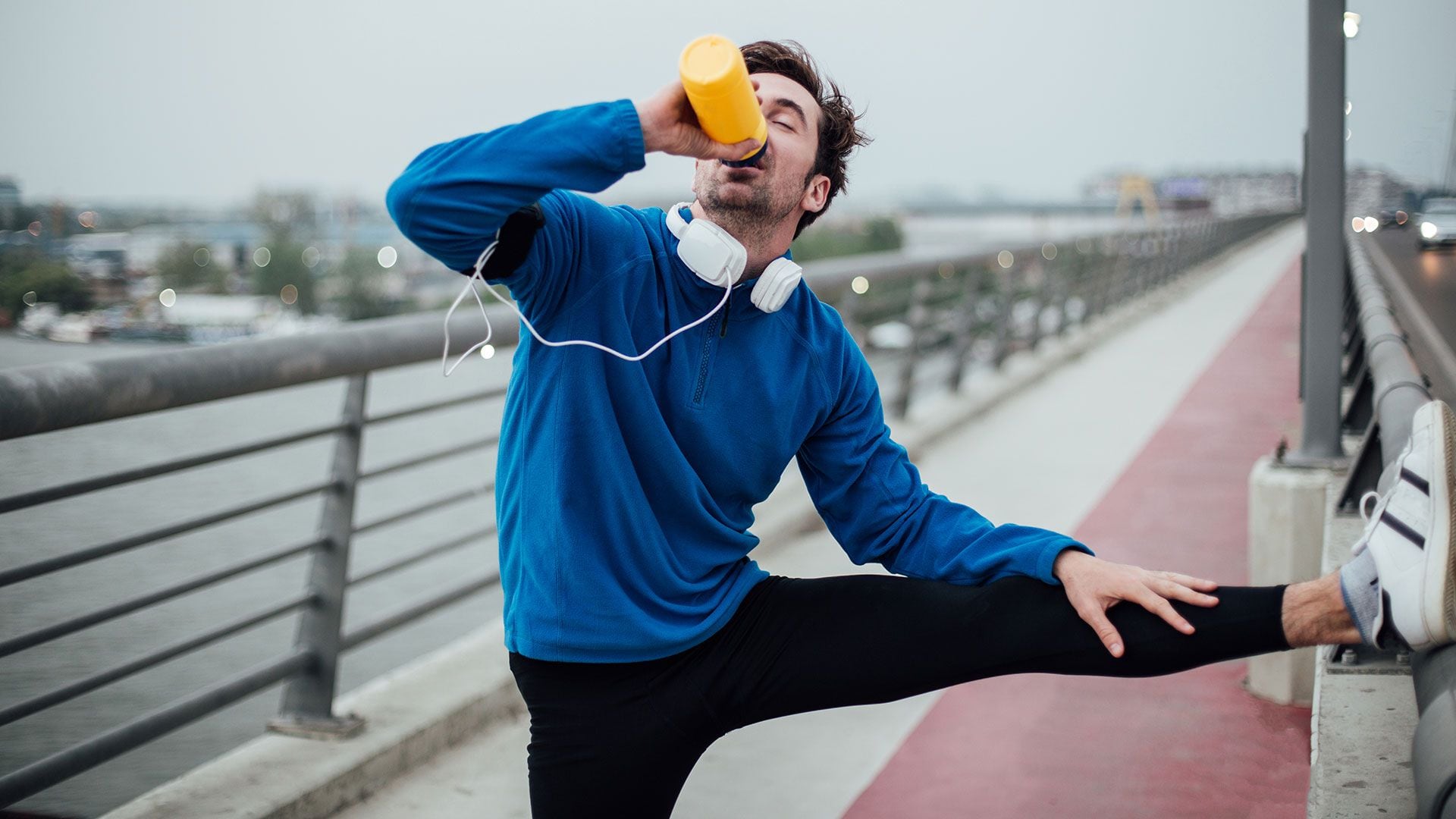:quality(85)/cloudfront-us-east-1.images.arcpublishing.com/infobae/IIXJ6BHG6FAOJO3FKZ7KCBROVM.jpg 420w)
In addition to exercising, getting hydrated, and getting enough sleep, the foods we eat play an essential role in keeping energy levels high. We might wonder what foods can help us maintain alertness and concentration throughout the day.
The first thing we need to know is that all foods provide energy in the form of calories, which are a measure of energy. A calorie measures the amount of energy needed to raise the temperature of 1 gram of water by 1 degree Celsius. That said, not all foods affect energy levels in the same way.
Of the three macronutrients, carbohydrates provide a faster source of energy compared to proteins and fats, as they are the body's preferred source of energy. However, carbohydrates are classified as simple and complex, as well as having a high or low glycemic index (GI). And once again, they affect energy levels differently.
Simple vs. complex carbohydrates

Simple carbohydrates comprise one or two sugar molecules and are known as monosaccharides and disaccharides, respectively. Because their structure is so small, they are easier to digest, and therefore they are easily used for energy.
However, their rapid rate of digestion means that they cause a rapid increase in blood sugar levels and, consequently, in energy levels, which is usually followed by a drop that can leave us feeling slow. Examples of simple carbohydrates that we may want to limit to avoid this effect include white bread, breakfast cereals, sweets, fruit juices, and processed or refined grains with added sugars.
In contrast, complex carbohydrates comprise three or more sugar molecules and are known as oligosaccharides and polysaccharides. Since their structure is more complex and they are usually rich in fiber, they take longer to digest and, therefore, provide a gradual increase in blood sugar levels.
This means that complex carbohydrates provide a steady supply of energy throughout the day. Examples of complex carbohydrate food sources that we might try to include in the diet include unrefined whole grains, oats, legumes, and starches.
Glycemic index

Another way to determine how carbohydrates can affect energy levels is through its glycemic index (GI), which indicates how a food that contains carbohydrates can affect blood sugar levels. Foods with a high GI tend to skyrocket and then collapse blood sugar levels, as do simple carbohydrates. In contrast, foods with a low GI, such as complex carbohydrates, are not known to cause abrupt variations in blood sugar levels.
Research shows that high-GI diets, which are high in sugars and low in fiber, are associated with decreased alertness and increased sleepiness. The GI of foods may be particularly relevant in the case of whole fruit and dairy products.
Structurally, carbohydrates in fruits and dairy products (fructose and lactose, respectively) are simple. However, both are nutrient-rich, low-GI foods that can provide a fast source of energy without sacrificing diet quality. However, it is important to note that fruit juices and flavored dairy products tend to have added sugars and therefore a high GI.
Carbohydrates provide a faster source of energy compared to proteins and fats. Simple or high-GI carbohydrates tend to skyrocket and then collapse your energy levels. Complex or low-GI carbohydrates ensure a constant supply of energy throughout the day.
What about caffeinated foods?

Caffeine is the most consumed stimulant in the world. Although it has many benefits and uses, it is primarily sought to help combat fatigue and drowsiness.
Foods and drinks that contain caffeine , such as coffee, tea, caffeinated soft drinks, energy drinks, matcha, chocolate, guarana, and yerba mate can also help reduce symptoms of fatigue and improve alertness and vigilance. This effect is mainly due to the effect of caffeine on the brain, which acts by blocking adenosine receptors, leading to increased release of dopamine and norepinephrine.
Adenosine is a compound with sleep-promoting effects, while dopamine and norepinephrine are two chemicals that stimulate the heart and central nervous system, increasing alertness and concentration.
However, some caffeinated products, such as energy drinks and caffeinated soft drinks, tend to be high in added sugars, which can increase the risk of obesity, type 2 diabetes, and heart disease . In addition, although caffeine consumption is generally recognized as safe, some people may experience side effects while consuming it, with symptoms ranging from mild to severe. These may include anxiety, restlessness, insomnia, irregular heartbeat, and tremors.
Exercise, Hydration and Sleep: Three Keys to Increasing Energy Levels

Exercising, hydration, and getting enough sleep are also key to increasing energy levels. Research shows that adherence to physical activity recommendations is associated with increased energy and reduced fatigue, even when leading a sedentary lifestyle.
In fact, exercise is often recommended as part of the treatment of chronic fatigue syndrome, a condition characterized by prolonged fatigue, joint pain, headaches, trouble sleeping, lack of concentration and short-term memory problems.
Current Physical Activity Guidelines for Americans, Physical Activity Guidelines for Americans, recommend that adults get 150 to 500 minutes (2.5 to 5 hours) of moderate-intensity aerobic physical activity to week, such as jogging, dancing, swimming and cycling.
Meanwhile, getting properly hydrated during the day could provide a boost of energy and help combat the feeling of fatigue. Not drinking enough water can lead to dehydration. Mild to moderate dehydration can cause difficulty concentrating, headaches, irritability, lethargy, and drowsiness.

According to the National Institutes of Health (NIH), men need about 15.5 glasses (3.7 liters) of water a day, while women need 11.5 glasses (2.7 liters) a day. However, your needs may change depending on the weather and your levels of physical activity. An easy way to keep track of your hydration status is to control the color of your urine. A light or pale color is a good indicator of optimal hydration.
Lastly, sleep health deserves the same level of attention as exercise and diet when it comes to energy levels and overall health. The body needs sleep to restore and conserve energy. Therefore, sleep deprivation caused by improper sleep leads to a decrease in alertness, performance and a general deterioration in health. Adequate sleep will not only improve energy levels, but also potentially overall health and quality of life.
While all foods provide energy, eating a healthy diet rich in complex carbohydrates may be the best way to avoid energy drops throughout the day. In addition, ensuring that you accompany the balanced diet with enough exercise, hydration, and enough sleep to improve energy levels and reduce fatigue is key.
KEEP READING:
